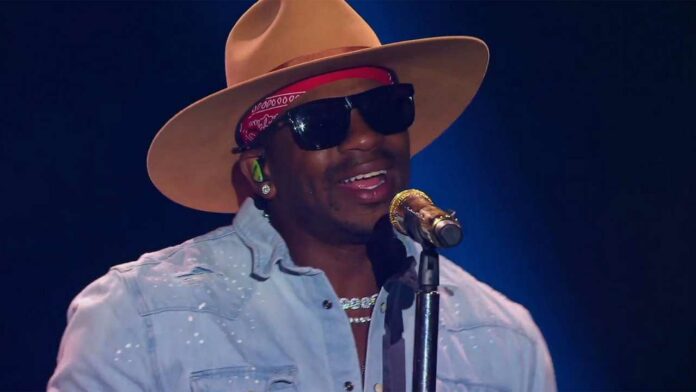Country music, often seen as a genre deeply rooted in tales of rural life and Americana, has been evolving, breaking past its perceived homogeneity to showcase a rich tapestry of voices and stories, including those of Black country singer. These artists have played a crucial role in shaping the genre, from the pioneering legends to the modern icons pushing boundaries and challenging stereotypes. Their journeys, marked by both challenges and triumphs, offer a glimpse into the evolving landscape of country music and its future.
The Early Pioneers
The narrative of Black artists in country music dates back to its very inception, with the genre itself deriving influences from African American musical traditions. Among the early pioneers, DeFord Bailey stands out, a harmonica genius whose performances on the Grand Ole Opry in the 1920s earned him widespread acclaim. Despite facing racial prejudices, Bailey’s legacy as a foundational figure in country music is undisputed.
Additionally, Charley Pride emerged in the 1960s, becoming the first Black country singer to achieve massive commercial success. Pride’s smooth baritone voice and his knack for storytelling led to a string of hits, including “Kiss an Angel Good Mornin‘.” His journey was a beacon for future generations, showcasing the potential for Black artists within the genre.
The 1990s to Early 2000s
As country music continued to evolve, the 1990s and early 2000s saw new Black artists emerge, each bringing their unique perspectives to the genre. Darius Rucker, initially famous as the lead vocalist of Hootie & the Blowfish, transitioned to country music and found significant success. His 2013 hit “Wagon Wheel” became a country anthem, solidifying his place in country music history.
Cowboy Troy introduced a fusion of country and rap, dubbed “hick-hop,” challenging traditional genre boundaries and introducing country music to a broader audience. His innovative approach demonstrated the genre’s versatility and its capacity for inclusion.
Modern Trailblazers
The current landscape of country music is rich with Black artists who are not only contributing to the genre but also reshaping it. Additionally, Mickey Guyton, with her powerful voice and heartfelt lyrics, addresses themes of race and gender, offering an essential perspective in country music. Furthermore, her song “Black Like Me” speaks directly to the Black experience, resonating with a wide audience and marking a significant moment in the genre’s history.
Moreover, Kane Brown and Jimmie Allen have both achieved remarkable success, with chart-topping hits and awards underscoring their impact. Brown’s mixed heritage and Allen’s determination to overcome barriers have made their stories and music resonate with fans across the globe, symbolizing a new era of diversity and inclusion in country music.
Challenges Faced by Black Country Singers
Despite their successes, Black country singers navigate a complex landscape, often encountering stereotypes and a lack of representation. Furthermore, the genre’s history and its association with a predominantly white audience have created barriers to entry for many Black artists. However, the perseverance of these artists in the face of such challenges has been instrumental in slowly changing perceptions and opening doors for future generations.
The Importance of Diversity in Country Music
The increasing diversity within country music enriches the genre, broadening its appeal and making it more reflective of America’s cultural tapestry. The efforts of Black country singer to carve out a space within the genre underscore the importance of representation, ensuring that country music continues to grow and evolve.
Future Prospects
Looking ahead, the future of country music appears bright. Additionally, with emerging Black artists like Brittney Spencer and Reyna Roberts gaining recognition, the genre is set to evolve. Furthermore, social media and streaming platforms play a crucial role in this new era, offering artists innovative ways to connect with audiences and build their careers outside traditional industry pathways.
Conclusion
The journey of Black country singers, from the early pioneers to today’s chart-topping stars, reflects a broader narrative of resilience, innovation, and the ongoing quest for representation in country music. Moreover, as the genre continues to evolve, the contributions of Black artists will undoubtedly remain a vital part of its story, shaping its future and ensuring its relevance for generations to come.
FAQs
- What challenges do Black country singer face?
Black country singer often face stereotypes, a lack of representation, and challenges in gaining acceptance within the genre’s traditional fanbase.
2. How has the reception of Black country singer changed over time?
While challenges remain, the reception of Black country singer has become more positive over time, with increased recognition and acceptance signaling a shift towards greater diversity within the genre.
3. Who are some Black country singer to watch in the coming years?
Brittney Spencer and Reyna Roberts are among the promising Black country artists making waves, poised for significant impact in the coming years.
4. How can fans support diversity in country music?
Fans can support diversity by exploring and sharing the music of Black country artists, attending their shows, and advocating for broader representation within the genre.
5. What role does social media play in the success of modern country artists?
Social media offers a direct line for artists to engage with fans, share their music, and build a community, playing a crucial role in the success and visibility of modern country artists, especially those from underrepresented groups.

